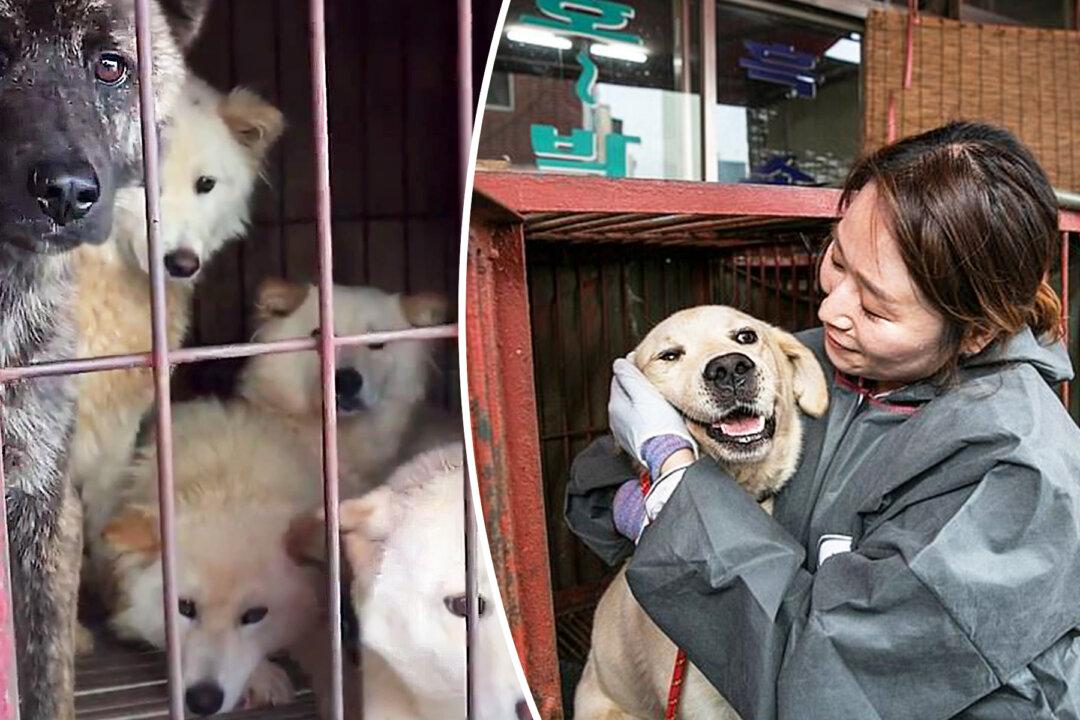One of South Korea’s most notorious dog meat markets was raided by authorities on July 1 as part of a crackdown in Seoul, the nation’s capital.
A total of 85 terrified dogs, mostly Korean Jindo-mixes, were rescued by local charity workers. They were found cowering in cramped cages, so scared that they sometimes refused to come out, and had to be coaxed, comforted, or physically removed by rescuers.





